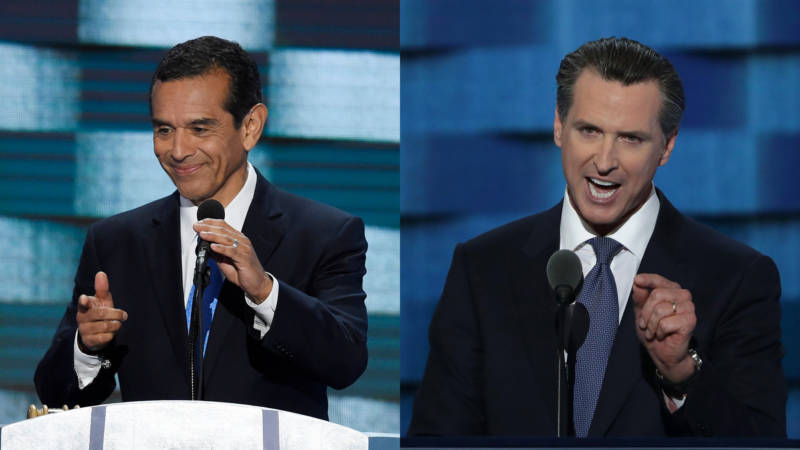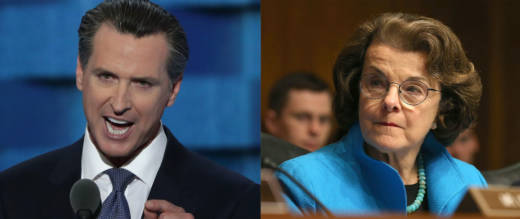If trends in the new Berkeley/IGS survey hold, California voters will have to choose between two Democrats running for governor in the November 2018 election.
North vs. South in Governor's Race
The poll of likely voters shows Lt. Gov. Gavin Newsom and former Los Angeles Mayor Antonio Villaraigosa pulling away from the rest of the pack in the June top-two primary.
Newsom leads Villaraigosa by 26 percent to 17 percent among likely voters. Everyone else is in single digits, including two Republicans. Two other Democrats, state Treasurer John Chiang and former Schools Superintendent Delaine Eastin, each have support from just 5 percent of voters. Twenty-eight percent are undecided.
Survey director Mark DiCamillo says the poll finds wide differences in voter support between the two leading Democrats running for governor.
"Newsom's base of support is largely in Northern California, particularly in the Bay Area, where he has a huge lead," DiCamillo said. "Whereas Villaraigosa is more popular than Newsom in Southern California, especially L.A. County. So you'd have a battle of the two regions."

Villaraigosa is strongest among conservatives, Latinos and voters with household incomes less than $40,000 a year. Among voters born outside the U.S., Villaraigosa leads Newsom by 32 to 15 percent, while Newsom is carrying U.S.-born voters 29 to 13 percent.

